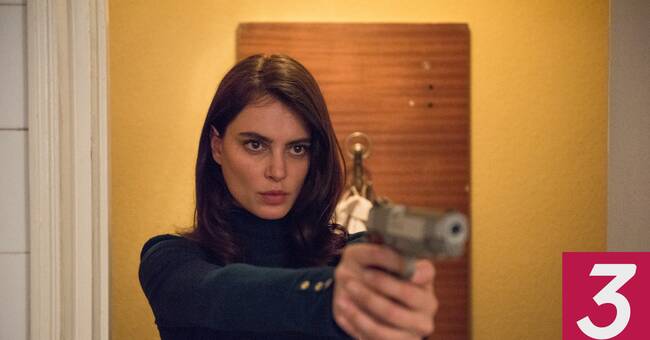In the beginning,
Iggy Pops
sounds
The Passenger when the main character arrives at the port on the Canary Island of La Gomera on a passenger ferry.
Maybe an ounce too clear…
But okay, he's on a hell of a journey, the corrupt Commissioner Cristi who's in contact with a gangster boss and is now embroiled in an internal fight between the villains about a megabyte from a major coup.
Cristi's colleagues, who have understood that he is sitting on two chairs, are also involved in the deadly dance around the banknote bag.
Nicely timed
and linked jumps in time for us back and forth in the course of events, bouncing between Bucharest and La Gomera like a restless globetrotter.
The gangster boss has sent Cristi to the said island to learn the ancient whistle language of the population.
Everything you can say you can also whistle, it is said.
It is not entirely clear what the point of the whistle is, well, it is said that they should be a way of communicating without the police being able to understand them, but in the end it looks mostly like a gimmick in the style of a MacGuffin a la Hitchcock.
It is characters
without either past or future, who only exist in this now, to take the story forward.
It's an effective way to tell stories, but it gives us little reason to care about them.
We should instead be amazed and amused by the slightly absurd event, which to a large extent also covers a tentative, or possibly just played, romance between Cristi and Gilda - a classic femme fatal that the director does not miss a chance to show full or half naked.
Yes, you hear.
It sounds dated.
It is difficult to know if the Whistlers are meant to be a pastiche on the old noir decks or if it is just an epigone.
It's not very engaging, but at times still quite entertaining.
Which was expected.
He's a funny guy, the good Corneliu Porumboiu.
Like the more famous compatriots Cristian Mungiu and Cristi Puiu, Porumboiu makes a laconic film where the humor sits and cures in the mouth, but where they deliver long and / or thoughtful dramas rooted in Romanian society, he invests more in speed.
Higher pace, fewer insights.
Sure, this is
worth seeing for those with a weakness for odd European films but not as resourceful as the director's debut in the long format, 12:08 east of Bucharest - a political comedy about the Romanian revolution that overthrew the old dictator Ceaușescu.
Check it out instead and see this lustification as a premium.

